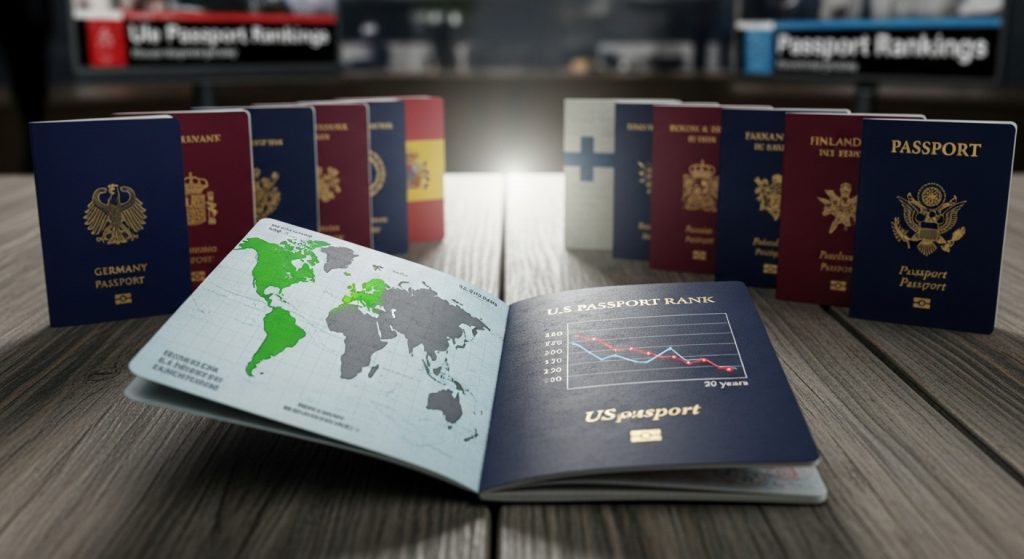United States Falls to Lowest Passport Rank in 20 Years as Europe Leads

Global travel freedom is undergoing a seismic shift, and the United States is no longer at the top of the hierarchy. According to the latest Henley Passport Index, America’s passport has fallen to its lowest ranking in two decades, signalling a major realignment in global mobility and soft power influence.
Meanwhile, Europe continues to dominate the global mobility landscape, bolstered by deep-rooted diplomatic relationships and robust visa-free agreements. Yet, the crown no longer rests in the West. For the first time in history, Asia has taken a decisive lead, with Singapore, South Korea, and Japan securing the top three spots.
Asia’s Ascent and the Power of Openness
Based on data from the International Air Transport Association (IATA), the Henley Index measures passport strength by the number of destinations accessible without a prior visa.
Singapore now leads the world with visa-free access to 193 destinations, followed closely by South Korea (190) and Japan (189). European nations like Germany, Italy, Spain, and Switzerland remain strong contenders, maintaining their presence in the upper ranks.
The United Kingdom, however, joins the U.S. in its decline, slipping to its lowest-ever position, now 8th on the list.
America’s Decline: A Reflection of Policy and Perception
U.S. citizens can currently travel to 180 destinations visa-free, placing the American passport in joint 12th position, alongside Malaysia. The fall follows years of restrictive travel policies and tightening immigration controls — a legacy of the Trump-era visa suspensions and subsequent diplomatic tensions.
According to the Henley Openness Index, the U.S. now ranks just 77th globally in terms of how many nationalities it allows to enter visa-free, a stark contrast to its once-celebrated image as a symbol of openness and opportunity.
“The declining strength of the U.S. passport is more than a reshuffle in rankings,” notes Dr. Christian H. Kaelin, Chairman of Henley & Partners. “It marks a fundamental shift in global mobility and soft power dynamics. Nations that embrace openness and cooperation are thriving, while those relying on past privilege are being left behind.”
China’s Strategic Rise
While Western nations grapple with stagnation, China’s passport power is quietly surging. Over the past decade, it has climbed from 94th place to 64th, gaining visa-free access to 37 new destinations.
Just in the past year, Beijing has granted visa-free entry to 30 more countries — a calculated move that underscores its growing influence on the global stage.
“Trump’s return to power has reignited trade tensions that hinder America’s global mobility,” explains Dr. Tim Klatte, Partner at Grant Thornton China. “Meanwhile, China’s strategic openness is enhancing its international presence and reshaping global travel dynamics.”
The New American Dream: Dual Citizenship
As the U.S. loses ground, many Americans are looking abroad for freedom of movement once taken for granted. Henley & Partners reports a record-breaking surge in Americans applying for second citizenship or residency through investment migration programs — a 67% year-on-year increase by Q3 2025.
“Multiple citizenship is being normalised in American society,” says Professor Peter J. Spiro of Temple University Law School. “While it might sound hyperbolic, as one social media user recently put it, ‘dual citizenship is the new American dream.’”
